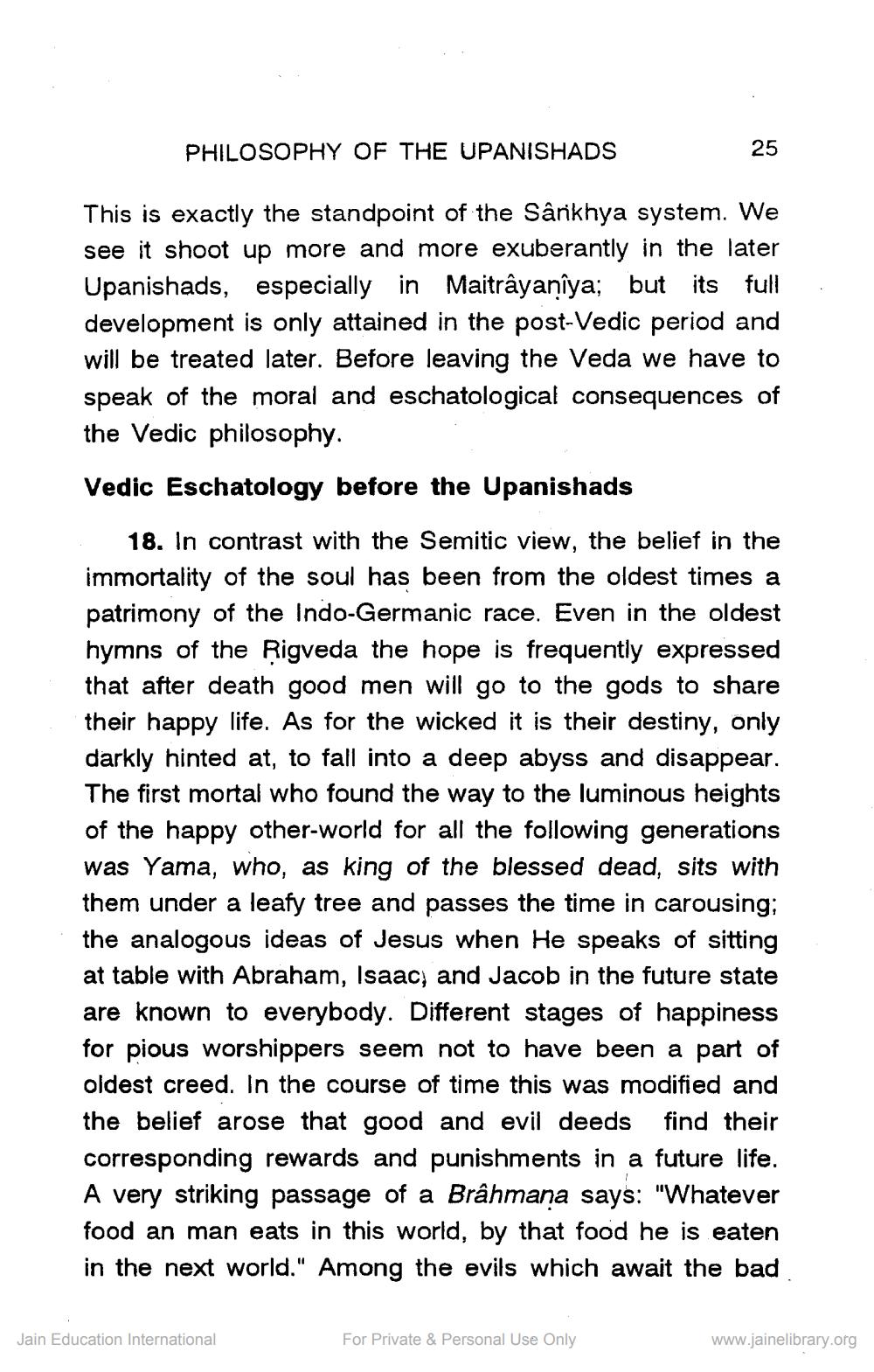________________
PHILOSOPHY OF THE UPANISHADS
25
This is exactly the standpoint of the Sârikhya system. We see it shoot up more and more exuberantly in the later Upanishads, especially in Maitrâyanîya; but its full development is only attained in the post-Vedic period and will be treated later. Before leaving the Veda we have to speak of the moral and eschatological consequences of the Vedic philosophy. Vedic Eschatology before the Upanishads
18. In contrast with the Semitic view, the belief in the immortality of the soul has been from the oldest times a patrimony of the Indo-Germanic race. Even in the oldest hymns of the Rigveda the hope is frequently expressed that after death good men will go to the gods to share their happy life. As for the wicked it is their destiny, only darkly hinted at, to fall into a deep abyss and disappear. The first mortal who found the way to the luminous heights of the happy other-world for all the following generations was Yama, who, as king of the blessed dead, sits with them under a leafy tree and passes the time in carousing; the analogous ideas of Jesus when He speaks of sitting at table with Abraham, Isaac, and Jacob in the future state are known to everybody. Different stages of happiness for pious worshippers seem not to have been a part of oldest creed. In the course of time this was modified and the belief arose that good and evil deeds find their corresponding rewards and punishments in a future life. A very striking passage of a Brâhmana says: "Whatever food an man eats in this world, by that food he is eaten in the next world." Among the evils which await the bad
Jain Education International
For Private & Personal Use Only
www.jainelibrary.org




